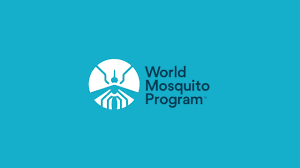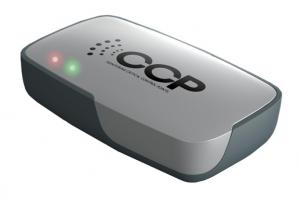CCP makes an impact with IoT
The World Mosquito Program is using the CCP Technologies IoT solution to reduce the risk of losing temperature sensitive research material.
CCP Technologies Limited (ASX:CT1)
CCP Technologies Limited (ASX:CT1) recently announced that the World Mosquito Program at Monash University Clayton campus is using its IoT critical control point monitoring solution to reduce the risk of losing temperature sensitive research material.
Michael White, Chief Executive Officer of CCP said,
“The World Mosquito Program - to control mosquito-borne diseases such as Dengue, Zika and Chikungunya - depends on rearing of thousands of mosquitoes in temperature-controlled rooms, cultivating cells and viruses, and performing research in state-of-the-art facilities. Monitoring temperature in rearing rooms, incubators and freezers is essential to progressing their research and reducing the risk of losing valuable time and samples.”
The World Mosquito Program is an international, non-profit initiative led from Monash University, with funding support from governments, research institutes and philanthropic partners around the world including The Bill & Melinda Gates Foundation. As part of the program the research team at Monash University have invented a natural, safe and effective way to combat the threat of the above mosquito-borne diseases.
Mr White said,
“This is all about Impact IoT – where contemporary technology is applied to make a difference. Globally, mosquito-borne diseases cause death and suffering. Dengue infections are a salient example, with an estimated 390 million cases occurring each year around the world which results in up to 25,000 deaths. To say that CCP is thrilled to play a very small part in Monash University’s work is an understatement. This implementation certainly demonstrates the diverse applications for the CCP’s IoT critical control point moniotring solution.”
IoT is also making a positive socio-economic impact in food supply chains. Every year the world wastes about a third of all food for human consumption (around 1.2 billion tonnes), along with all the energy, water and chemicals needed to produce it and dispose of it. Almost one quarter of this waste is due to deficient refrigeration or a cold chain failure.
In Australia, an estimated 4.1 million domestically acquired cases of foodborne illness occur every year, costing an estimated AUD$1.2 billion per year. One of the most common causes of foodborne illness is the storage and display of potentially hazardous (perishable) foods at inadequate temperatures for extended periods. This can lead to the rapid and sustained growth of food poisoning bacteria. In the massive global food industry, temperature is a critical control point.
In a submission to the Australian Government’s foodborne illness reduction strategy, CCP said new technology has the potential to reduce the risk of foodborne illness and reduce food waste.
Mr White said,
“When it comes to food safety, IoT is set to revolutionise supply chains to deliver benefits to businesses and consumers. CCP captures and transmits temperature, humidity and other critical control point data using its patented Smart Tags (sensors) to a big data cloud platform where it is analysed to deliver business intelligence. The increased deployment of automated monitoring solutions like CCP’s presents a significant opportunity to improve food shelf-life and food safety.”
The combination of Cloud, IoT, Big Data Analytics and Blockchain applications creates a disruptive technology for managing compliance and product quality in the food industry. Globally, food companies are looking to use Blockchain to improve their ability to monitor temperature conditions for perishable foods to ensure quality control and extend shelf life. CCP’s move into Blockchain and Shipment Monitoring has attracted interest from strategic investors.
David Ritter, Chief Executive Officer, Penta Global Blockchain Foundation said,
“In July 2018, the Penta Global Blockchain Foundation completed a strategic investment in CCP Technologies because we see many strategic opportunities to work with the company to deliver new solutions to the market. The new partnership will see the integration of Blockchain and IoT technologies to deliver socio-economic impact. We already have a ‘Blockchain Rice’ solution for 30,000 rice growers for food security and improved supply chain management. The solution provides growers, harvesters, milling, transport and retail data to be stored on the Blockchain delivering valuable data to all stakeholders.”
IoT has moved beyond a ‘new phenomenon’; it is now a part of everyday life. In a similar way as the Internet matured from being a novelty to an everyday business tool, IoT is being used by the smallest of businesses to the largest corporations. As proliferation continues, IoT will be leveraged in many ways – including the ways which will improve people’s lives, sustain resources and protect our environment.
About CCP Network
CCP Technologies – a listed public company on the Australian Securities Exchange – offers a critical control point management system in Australia, North America and has an emerging presence in Singapore. Critical control points are the points in a supply chain where a failure of standard operating procedure has potential to cause serious harm to people – and to a business’ reputation and bottom line. Standard critical control points include temperature, energy, environment (e.g. air and water quality, pH, chemicals, noise, acoustics and gases) and movement.
CCP captures data using Smart Tags (sensors) and an advanced Internet of Things (IoT) network which leverages WiFi and various LPWAN connectivity solutions. Data is delivered to the company’s big data cloud platform where it is analysed to deliver business intelligence. Customers access this information through Web and Mobile Dashboards; and receive real-time alerts via SMS, email and push notifications.
Michael White | Executive Director & CEO
CCP Technologies
+61 (0) 412 799 232
email us here
Legal Disclaimer:
EIN Presswire provides this news content "as is" without warranty of any kind. We do not accept any responsibility or liability for the accuracy, content, images, videos, licenses, completeness, legality, or reliability of the information contained in this article. If you have any complaints or copyright issues related to this article, kindly contact the author above.


